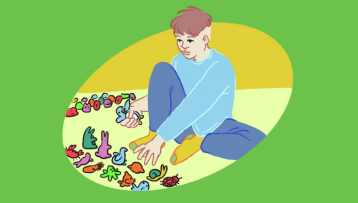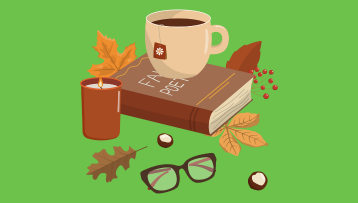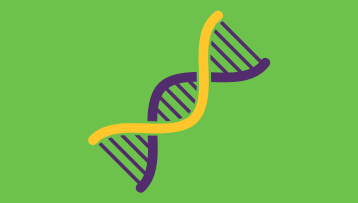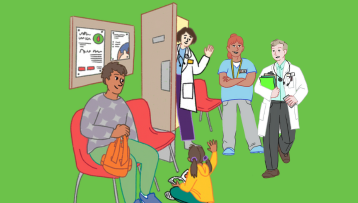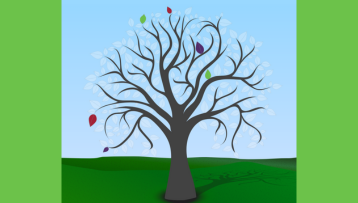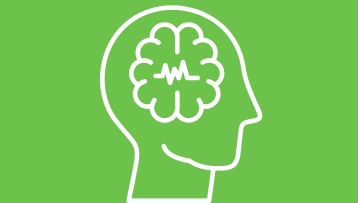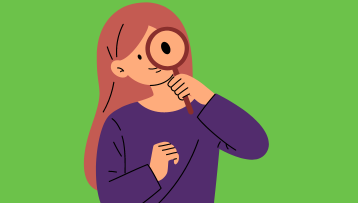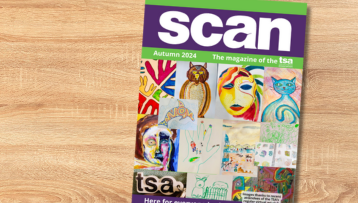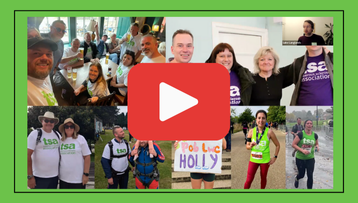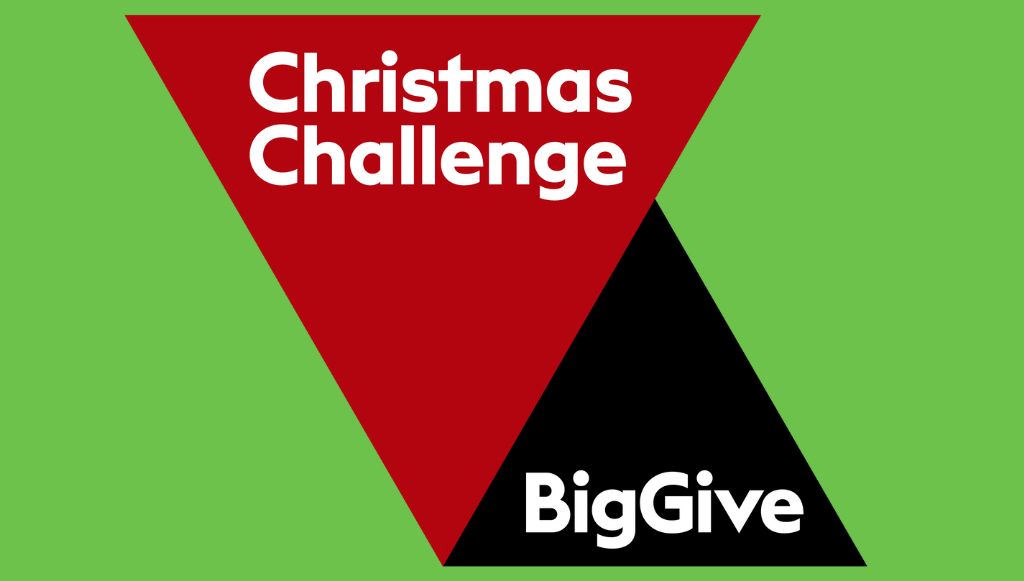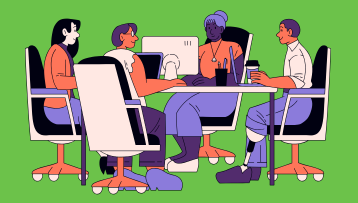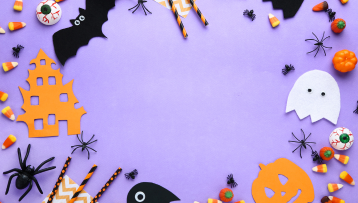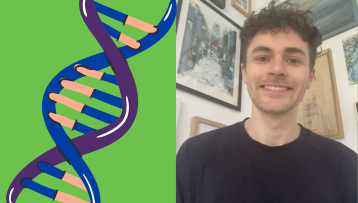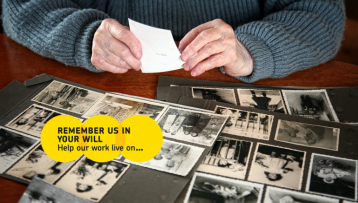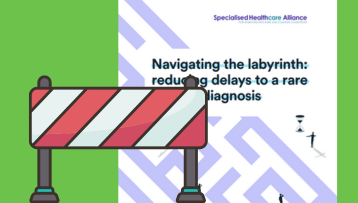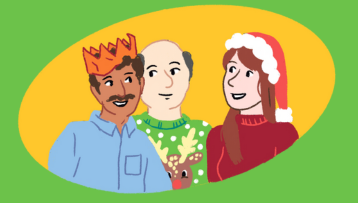As part of our work to highlight Global TSC Awareness Day and Global Mental Health Awareness Week, both of which started on 15 May, we asked the TSC community to share their experiences of TSC and mental health challenges. Rebecca, who is aged 24 and was diagnosed with TSC when she was five, took the time to tell us her story:
“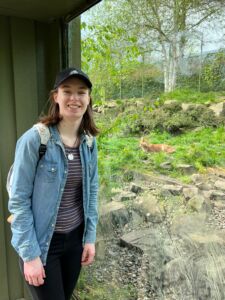 Although my TSC is on the milder side, TAND has had a profound effect on my life. When I was younger I had a period where I suffered from Obsessive Compulsive Disorder (OCD), which varied from excessive hand washing and other rituals – like walking on stairs a certain way – to intrusive thoughts. It took a lot of support from my parents to overcome the worst of it and manage the stresses that come from suffering with this mental issue.
Although my TSC is on the milder side, TAND has had a profound effect on my life. When I was younger I had a period where I suffered from Obsessive Compulsive Disorder (OCD), which varied from excessive hand washing and other rituals – like walking on stairs a certain way – to intrusive thoughts. It took a lot of support from my parents to overcome the worst of it and manage the stresses that come from suffering with this mental issue.
Two of the biggest challenges for my TSC and mental health has been anxiety and sleeping issues, which are still a big thing in my life. I was always a ‘worrier’ as a child and teenager and it caused me and family a lot of extra stress. Staying active usually helps me deal with the feelings, such as hiking with my family and dog, and a good day-time and night-time routine. Lavender spray for my pillow usually help a lot with settling me down to rest.
When I was younger, it was as if I had the inability to relax and switch off. My mind was constantly active and it made me anxious about not being able to sleep… so then I couldn’t sleep! Which made it worse. It was a vicious cycle. I tried many things including camomile tea and natural remedies to products from health food shops, but most things didn’t really help. It took a lot of trial and error to find something that suited my sleeping issues and what worked for me. Many doctors weren’t comfortable prescribing sleeping aids for me which was quite deflating for all of us. Over the years it did improve as I learned ways to help me sleep.
There are some days when I still don’t sleep well and just ‘have to roll with it’. It’s all about being patient and kind to myself when I have a bad night and not to push myself too hard the next day. I don’t beat myself up as much for not sleeping and reassure myself not sleeping is not going to be a big problem the next day. But I had to convince myself. My parents tried for years, but it had to be me to accept it for myself.
In terms of anxiety, I have had many experiences with different therapists and counsellors to help voice out my stress so not to overload it all on my parents. It all came to a head with other normal anxiety-inducing life situations as a young adult on top of what I was feeling already. Through an established link I still have with my CBT therapist and trying out anti-anxiety medication, it has allowed me to do my usual forms of self-care to help self soothe and relax a lot easier. It dials down my anxiety to a lower, more manageable level.
Anxiety is, for sure, my biggest TAND-related challenge with TSC. It caused me to avoid anything outside my comfort zone for the longest time. Writing something like this would have not been on my bingo card at all! It has taken years of trial and error to get to this point where I feel more confident to open up about things.
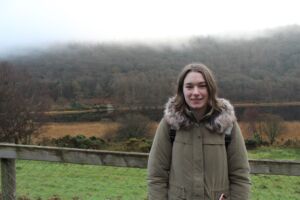
I have had various spans of when I had feelings of depression. It wasn’t all related to TSC, but it certainly was the cherry on top for it all to reach a peak. It caused a lot of frustration and upset and, of course, stress on me and my family. I have gone through therapy to help with this. For me, anxiety and depression are almost interconnected, so therapy has helped me in managing both. Adding to this further, I had very little self-confidence due to regular experiences on top of feeling isolated being one of the people in my rural area with a rare disease, let alone TSC.
All this came from support of my family and me trying to find ways to manage it. Healthcare and families in Ireland are still in the middle of trying to find ways to co-ordinate care of TSC altogether, but TAND is something not really well known in the medical field just yet. I myself didn’t know TAND was a very real thing until my late teens to early 20s! As Ireland is a small country and TSC is already not so well known in the main areas of medicine yet, I had no professional discussion around TAND. Most of my knowledge of TAND is from my own research and organisations like the TSA and the TSC Alliance. So, the TSA highlighting these issues is a massive help to families trying to figure out ways to manage the symptoms of TSC, like TAND as it becomes more of a forefront in medical care.
I hope this helps someone feel less alone, to know that trying different things to help is perfectly ok. All self-care is not one size fits all. It is a frustrating process at times for everyone involved with TSC trying to find management tools. But eventually you will find what doesn’t work and can move on to find what does.”









